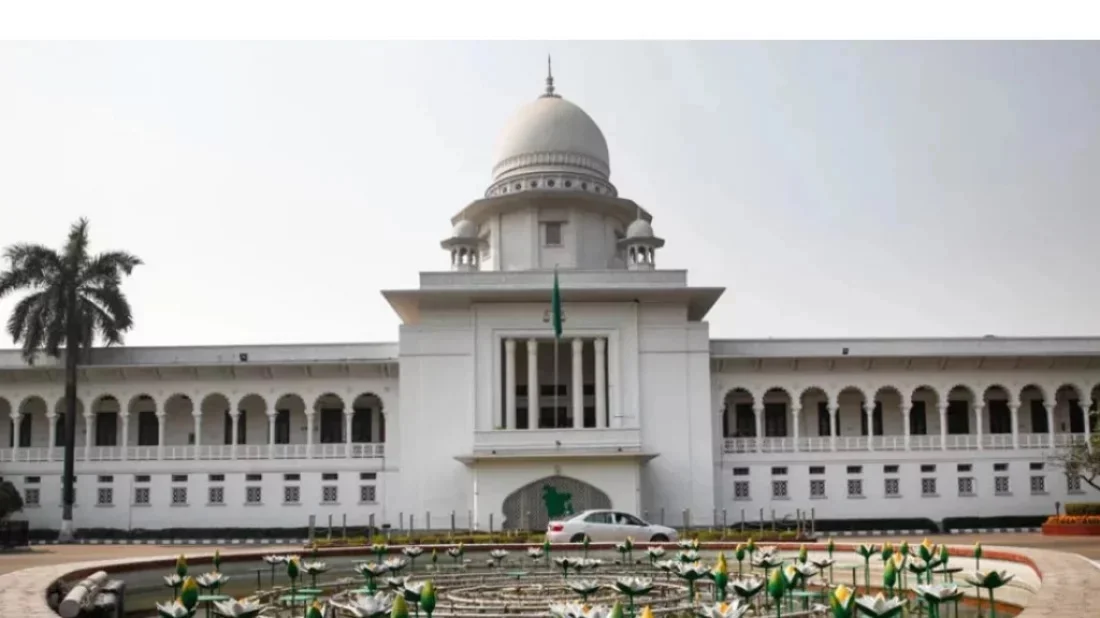High Court issues rule nisi to formulate guidelines on guardianship rights
Share on:

Petitioners filed writ in public interest
The High Court on Monday issued a Rule Nisi upon the government to explain why Section 19 (b) of the Guardians and Wards Act, 1890 should not be considered unconstitutional as the section may violate fundamental rights guaranteed under the Constitution, such as Article 26 (which states that laws conflicting with fundamental rights are void), Article 27 (which guarantees equality before the law), and Article 28 (which prohibits discrimination based on factors like sex or religion).
The High Court also directed the Ministry of Women and Children Affairs and the National Human Rights Commission to constitute a committee comprising the respondents and independent experts to formulate detailed criteria and guidelines to help decision-makers assess guardianship issues and submit the guidelines to the court within four months of issuance of the rule by August 4, 2024.
A Division Bench of the High Court Division of the Supreme Court of Bangladesh, comprising Justice Naima Haider and Justice Kazi Zinat Haque, issued the rule and directions in a writ filed by five petitioners – namely Think Legal Bangladesh, Bangladesh Legal Aid and Services Trust (Blast), Bangladesh Mahila Parishad, Naripokkho and the Academy of Law and Policy (Alap).
The respondents to the petition are the Ministry of Law, Justice and Parliamentary Affairs, the Ministry of Women and Children Affairs, the Law Commission, Bangladesh and the National Human Rights Commission, Bangladesh.
Sara Hossain, senior advocate, Supreme Court of Bangladesh, said: “This order today (Monday) is an important step in moving us towards ensuring equality for women in relation to rights within the family and to guardianship of children, and away from the discriminatory attitudes and concepts that were embedded in colonial laws and continue to prevail in society.”
Barrister Anita Ghazi Rahman, advocate, Supreme Court of Bangladesh and trustee, Think Legal Bangladesh, said: “The Guardians and Wards Act of 1890 dates back 134 years to a colonial era when women lacked legal status and rights. It's outdated for the 21st century. Recognizing mothers' rights as guardians of children is a positive initial move. We anticipate that the reports to be released on August 4th will contribute to upholding women's rights in terms of guardianship.”
Advocate Masuda Rehana Begum, joint general secretary, Central Committee, Bangladesh Mahila Parishad, said: “This ruling marks a significant step forward in upholding women's rights. Gender discrimination has no place in the 21st century. Amending this law concerning child custody and guardianship will ensure equal rights for women, especially mothers, in society.”
Advocate Kamrunnahar, member of Naripokkho, said: “Although our society and culture glorify mother and motherhood, it always fosters a demeaning view of women. We can see its reflection in existing discriminatory laws regarding custody and guardianship of children. Due to this discrimination, many women have to live with the deprivation and pain of not having children. We hope that today’s revolutionary order will create an opportunity to move forward in the elimination of discrimination in assessing guardianship issues.”
Sara Hossain, senior advocate, appeared for the petitioners, with Barrister Anita Ghazi Rahman, Barrister Rashna Imam, Advocate Masuda Rehana Begum and Advocate Ayesha Akhter. Deputy Attorney General Amit Das Gupta was present on behalf of the Government.
Background
The petitioners filed this writ in the public interest impugning Section 19(b) of the Guardians and Wards Act, 1890, as being violative of the fundamental rights of women to equality and non-discrimination and praying for a declaration that women and men be treated on an equal footing for the purpose of being appointed or declared as the guardian of a minor under the Guardians and Wards Act, 1890 in accordance with the fundamental rights guaranteed under Article 26,27 and 28 of the Constitution.

